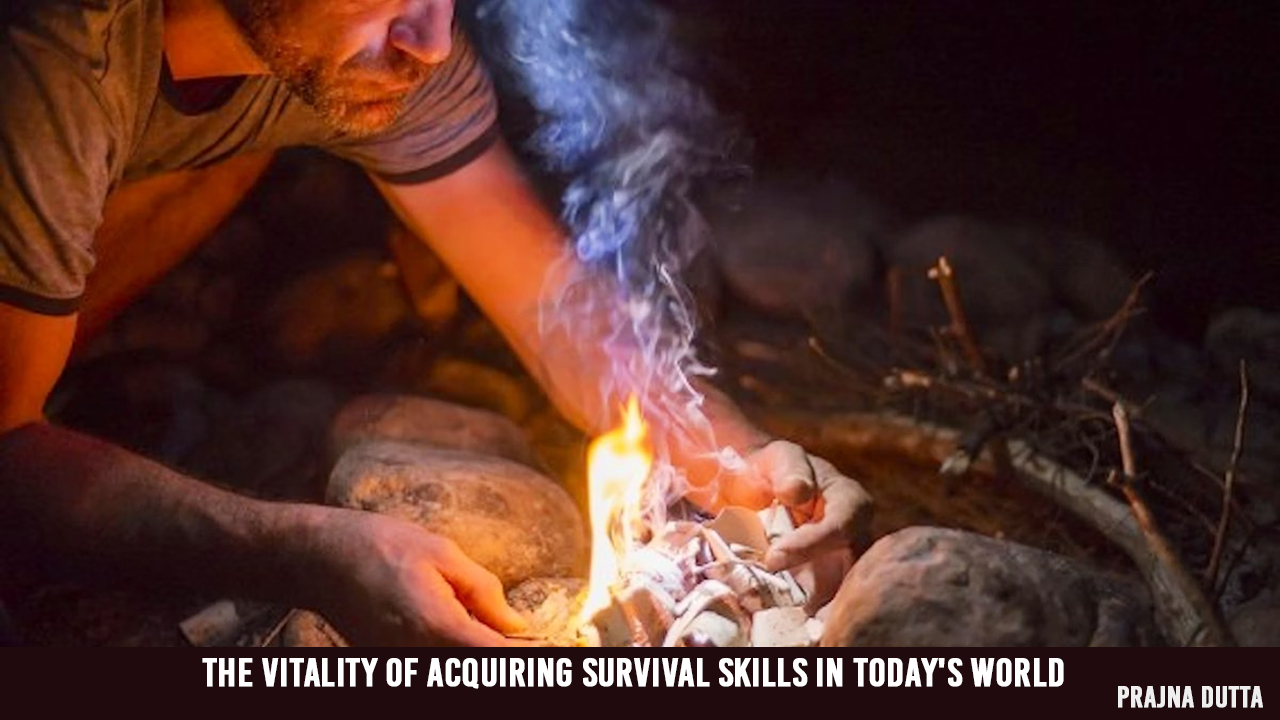Introduction:
In an era characterized by technological advancements and modern conveniences, the importance of learning survival skills may seem diminished. However, the unpredictability of life and the potential for natural disasters, emergencies, or unexpected situations persist. Equipping ourselves with survival skills becomes paramount to ensure our safety and well-being in the face of adversity. In this article, we explore the significance of learning survival skills in today's world.
1. Enhancing Personal Safety:
Learning survival skills empowers individuals to handle various critical situations effectively. Whether it's administering first aid, understanding self-defense techniques, or knowing how to react during emergency scenarios, these skills can save lives. By acquiring knowledge of basic medical procedures, CPR, or the ability to manage injuries, individuals become more capable of providing immediate assistance until professional help arrives.
2. Navigating Natural Disasters:
Natural disasters such as earthquakes, hurricanes, floods, or wildfires can strike unexpectedly, leaving communities vulnerable and disconnected. Survival skills enable individuals to be self-reliant during such events. Learning how to secure shelter, find potable water, build a fire, and procure food are fundamental skills that can make a significant difference in surviving and maintaining well-being until help arrives.
3. Building Resilience and Adaptability:
Survival skills foster resilience and adaptability, allowing individuals to thrive in challenging circumstances. By developing problem-solving abilities, resourcefulness, and the capacity to adapt to changing environments, individuals become better equipped to face adversity in any form. These skills not only strengthen personal resilience but also instill a sense of self-confidence and self-reliance.
4. Encouraging Self-Sufficiency:
In an increasingly interconnected world, reliance on modern infrastructure and services is the norm. However, disruptions to these systems are not uncommon, whether due to natural disasters, power outages, or other unforeseen events. By learning survival skills, individuals can mitigate the impact of such disruptions by developing self-sufficiency. Skills such as gardening, food preservation, water purification, and basic repair work can help individuals sustain themselves during challenging times.
5. Fostering a Sense of Community:
Survival skills not only benefit individuals but also promote community resilience. In times of crisis, communities that possess a collective knowledge of survival skills can come together to support and protect one another. Cooperation, communication, and the ability to share resources become essential skills that contribute to the well-being of the entire community during emergencies.
6. Thriving in Outdoor Environments:
Survival skills are particularly valuable for those who enjoy outdoor activities such as hiking, camping, or exploring remote areas. Understanding navigation, wilderness first aid, fire building, and shelter construction ensures personal safety and enhances the overall outdoor experience. These skills also cultivate a deeper appreciation for nature and foster responsible environmental practices.
Conclusion:
In today's world, where our dependence on technology and modern conveniences is ever-increasing, the importance of learning survival skills should not be overlooked. By acquiring these skills, individuals can enhance personal safety, navigate natural disasters, build resilience, promote self-sufficiency, foster community cohesion, and thrive in outdoor environments. Embracing survival skills encourages self-reliance, adaptability, and preparedness, enabling us to face unexpected challenges with confidence and readiness. In essence, learning survival skills equips us with the tools necessary to safeguard ourselves, our loved ones, and our communities in an ever-changing world.

RsxoiBGtOg
RsxoiBGtOg